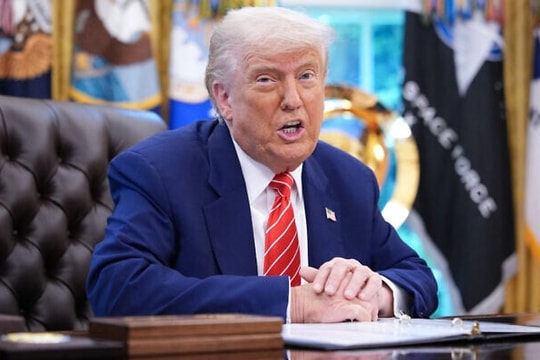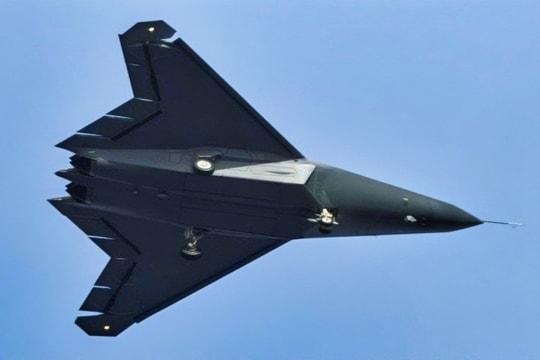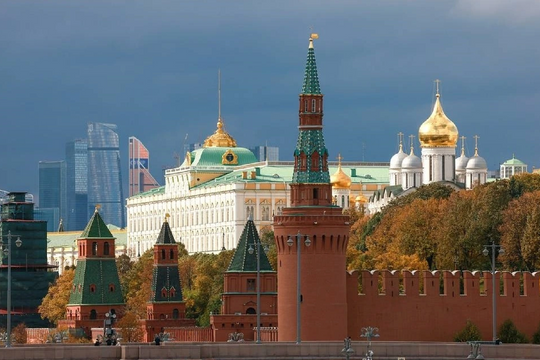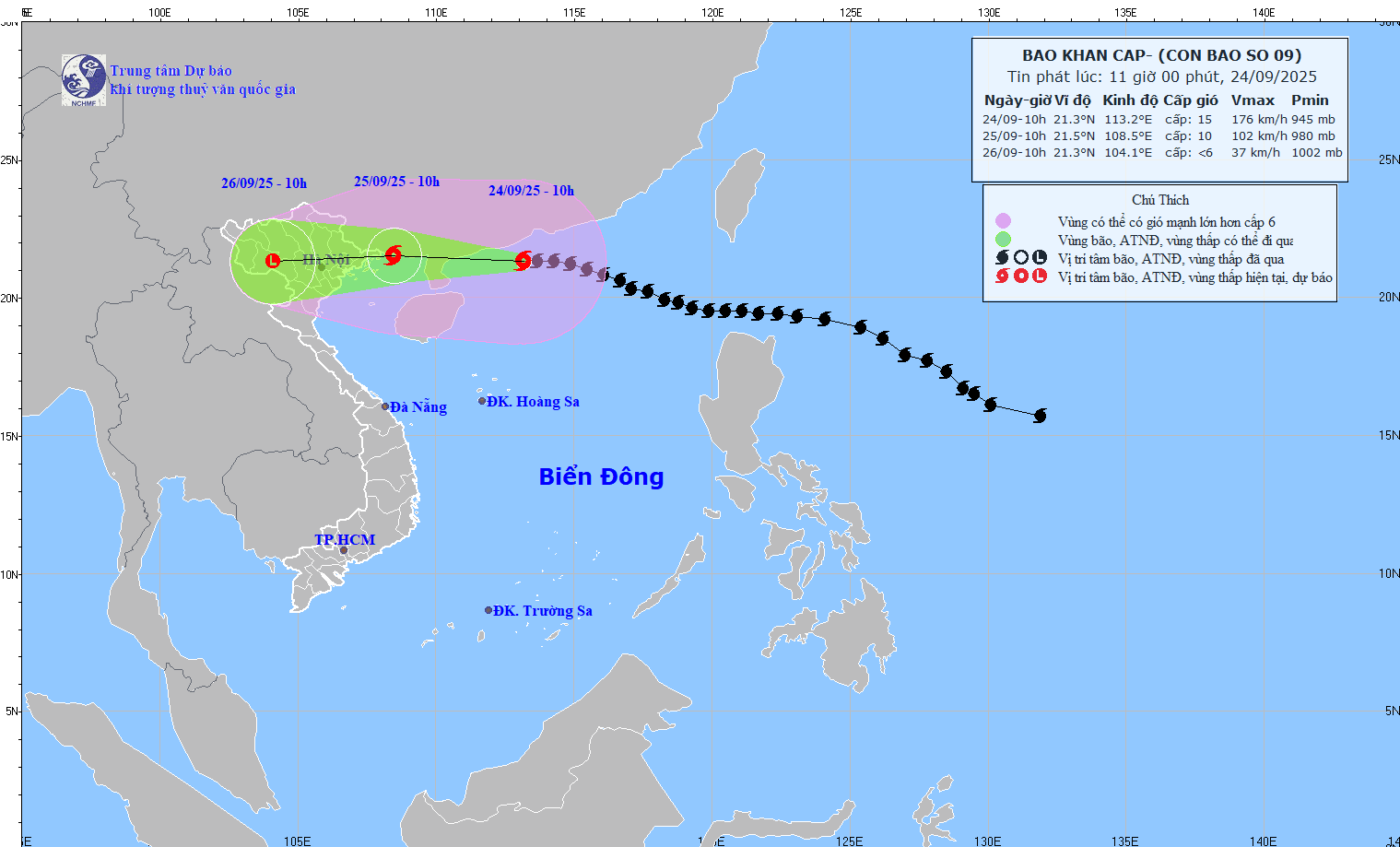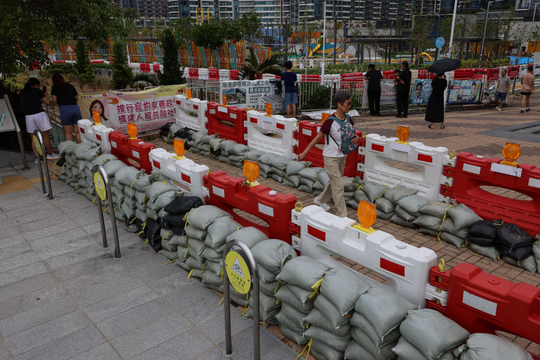General Cuong talks about China's achievements and challenges
(Baonghean.vn) - Major General Le Van Cuong - Former Director of the Institute of Strategic Sciences, Ministry of Public Security, had an interview with Nghe An Newspaper on the occasion of China's National Day, October 1, about the achievements China has made after more than 40 years of opening up and economic reform and the challenges facing this country in the coming time.
PV:On October 1, 2020, the People's Republic of China celebrated its 71st anniversary. In the course of China's history, there have been ups and downs like other countries. Could you tell us about the stages of China's development over the past 71 years?
Major General Le Van Cuong:History is a continuous flow, the same for every country. But this flow never flows straight, it is winding, tortuous, sometimes up, sometimes down. In my opinion, the 71 years of the People's Republic of China can be divided into 3 stages, each stage has its own mark. The first stage was led by Mao Zedong, from October 1, 1949 until his death in September 1976. The second stage from 1978 to 2012 is considered the Deng Xiaoping stage. Deng Xiaoping officially held power from 1978 to 1996. The two following General Secretaries, Jiang Zemin and Hu Jintao, basically continued to implement Deng Xiaoping's guidelines and policies. Since the 18th Congress (February 2012), China has entered another stage bearing Xi Jinping's own mark.
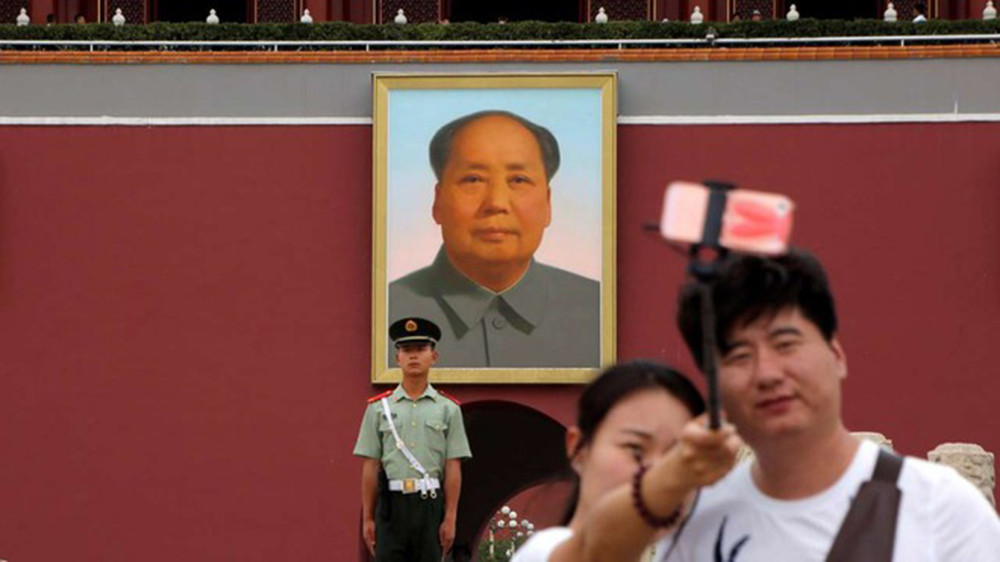 |
| Portrait of Chairman Mao Zedong in Tiananmen Square in Beijing. Photo: Reuters |
During his 26-year reign, Mao Zedong made great contributions to the rise and unification of China. Therefore, the Chinese people credit Mao Zedong with unifying the country, with the achievements in driving out Japanese fascists, and overthrowing Chiang Kai-shek's regime. Therefore, it can be said that Mao Zedong's period was a period of nation building, but in terms of economy and society, Mao Zedong also made many mistakes. In terms of economy, the biggest mistake was the period from 1958 to 1962 when he implemented the "three red flags" policy of the Great Leap Forward, which was extremely leftist, leading to a period of economic desolation, with tens of millions of people starving to death. From 1966 to 1976, he implemented the Great Cultural Revolution, with the public purpose of opposing development along the capitalist path, but in reality, this was a purge.
The second phase was the phase of Mr. Deng Xiaoping - one could say that he was the man who built China into a superpower. With the policy of untying 300 million domestic workers, escaping the centralized bureaucratic and subsidized mechanism, Mr. Deng Xiaoping simply said "White cat, black cat is not important". His meaning was not to care about socialist production relations. Whoever develops the economy and brings life is to do everything.
Regarding foreign affairs, Mr. Deng Xiaoping advocated joining hands with the US. He once said in the Politburo, in 50 years we will not oppose the US, we will accept the US as the world leader; accept the US economic order, political order, legal order, only asking the US to let China integrate into the US and Western economies. Deng Xiaoping's genius was that he said that when the US allows us to integrate into the West, we will attract their huge financial resources, attract high technology through their FDI, plus 200 million Chinese workers, turning China into a factory.
With such domestic and foreign policies, after 41 years (from 1978 to 2019), China has attracted more than 1,000 billion dollars in foreign investment, creating the backbone of the Chinese economy. In 2019, after 41 years of open-door policies, 400 million Chinese people have escaped poverty. And China currently has the largest number of millionaires in the world. If in 1978, China's per capita income was only 190 dollars, by 2019, the per capita income was nearly 10,000 dollars. After 41 years, GDP per capita increased 52 times. In 1949, China's GDP per capita was $30, after 71 years (2019), the per capita is $10,000, an increase of 330 times after 71 years.
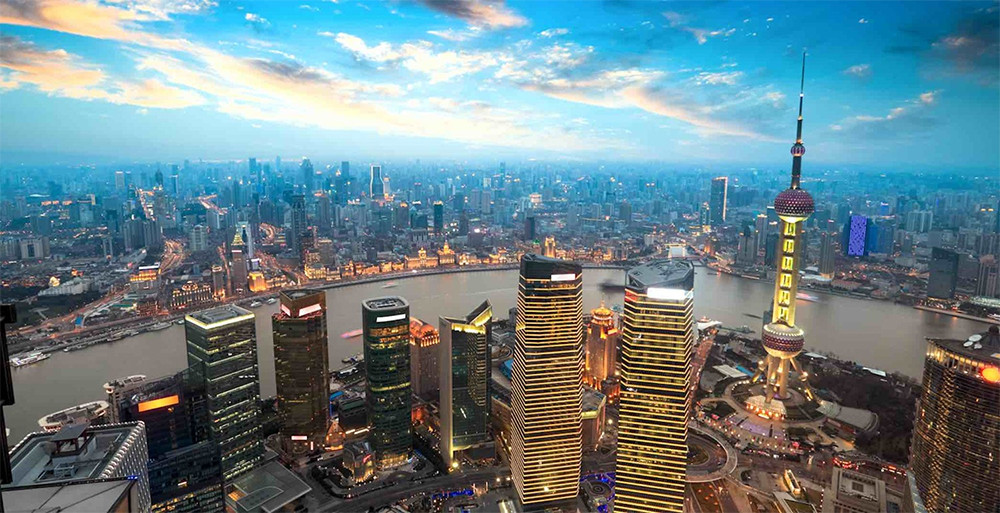 |
| A corner of downtown Shanghai. |
PV:According to Major General, what are the reasons that China has achieved such achievements?
Major General Le Van Cuong:There are many different explanations for the cause. Every prosperous period of a country is associated with a wise ruler. The brilliant development of China, the first thing to mention is the decisive role of Mr. Deng Xiaoping. He has aroused 650 million people to liberate themselves to work, then become rich and attract trillions of dollars from the world to invest. It can be said that the role of Deng Xiaoping is number 1.
The second reason is that 650 million people are liberated from the "golden hoop" - the centralized bureaucratic and subsidized mechanism to get rich.
The third reason is that China has taken full advantage of high technology from Europe, the US and Japan. It can be seen that the international environment is too favorable when the whole capitalist worldopen cooperation with China.
PV:Major General, the period 1978-2019, many people consider it the golden age of China. Entering 2020, the world and China are also facing certain difficulties. According to you, are China's difficulties as severe as predicted by the West?
Major General Le Van Cuong:World public opinion believes that the period 1978 - 2019 was a golden age. But from 2020, China entered a completely different phase: very difficult, many challenges.
First of all, the international environment, the Covid-19 pandemic has awakened the world to not organize production dependent on China. It is the Covid-19 pandemic that has awakened countries around the world to remember the motto "don't put all your eggs in one basket". Of course, it is impossible to separate China in the current era of globalization because they are really intertwined. But the international environment is completely unfavorable for China as it has been for the past 41 years. Difficulties pile up forinternational economic relations. China now can no longer easily exploit Western and international advantages.
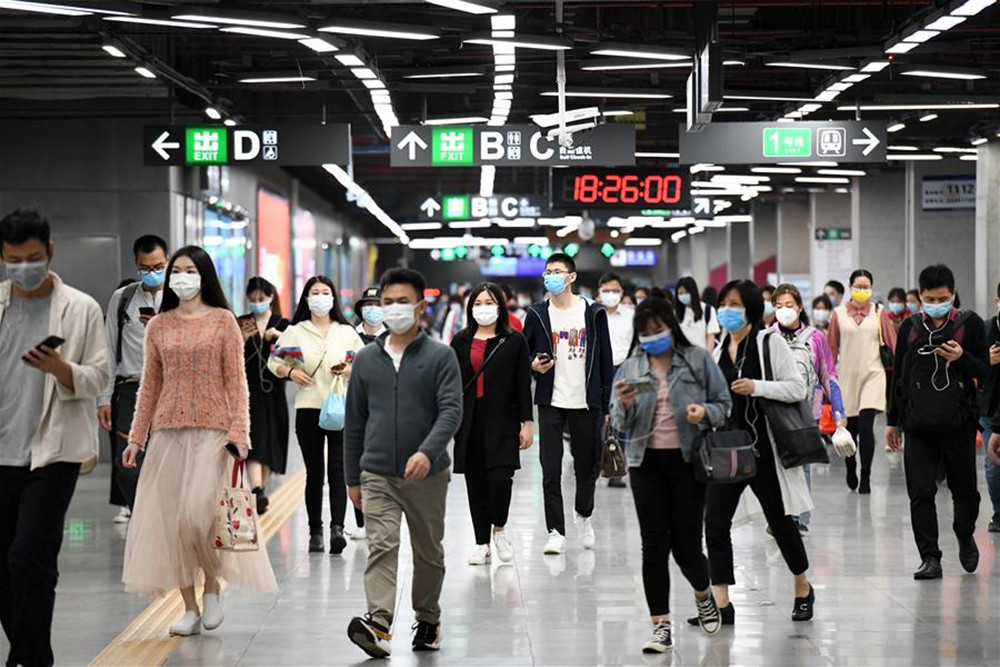 |
| The Covid-19 pandemic has also been a heavy blow, causing the Chinese economy to decline. In the photo: A subway station in Guangdong province, China. Illustration photo: THX |
The second difficulty, the Covid-19 pandemic, is also a heavy blow that has impactedeconomic recession. In 2020, China will try its best to increase by 2-3%. According to many sources, China currently has 30-40 million unemployed people, hundreds of thousands of bankrupt businesses. That is not to mention 41 years of running a marathon with the world's strong economies: chasing France to surpass France, chasing the UK to surpass the UK, chasing Germany to surpass Germany, chasing Japan to surpass Japan and is chasing the US to surpass the US; by investing, creating a huge mountain of debt (of both the government and localities).
According to economists, when the total public debt reaches about 130% of GDP, the ability to repay the debt is still there (the safe limit of public debt). Meanwhile, according to many experts, China's public debt is currently at least 300% of GDP, or about 40 trillion dollars. Public debt is not an easy problem to solve. China will have to face the human resource problem due to 35 years of implementing the one-child policy in 2021, 2030, and 2049. From now until 2030, the labor force will decrease significantly, and the number of retirees will increase.
Internationally, internally, and also in terms of anthropology and society, the difficulties are piling up. China's take-off period is over, and the coming period will be a difficult and extremely challenging one. But I believe that the Chinese Communist Party has the wisdom and courage to overcome these difficulties, but it cannot create new miracles.
PV:On the other hand, the Sino-US relationship has recently attracted much attention in the international forum. Many opinions say that this is a “cold war” and there is a risk of military confrontation. According to the Major General, is that likely to happen?
Major General Le Van Cuong:The whole world is watching the US-China relationship. The US-China trade war has a global economic impact. In my opinion, the golden age of China-US relations (from 1978 to 2017) is over. From now onChina-US relationsnot as good as in the past. Competition is becoming more and more fierce and confrontational. But at least in the next 10 years there is no possibility of a cold war, because by all means China is afraid of a cold war with the US.
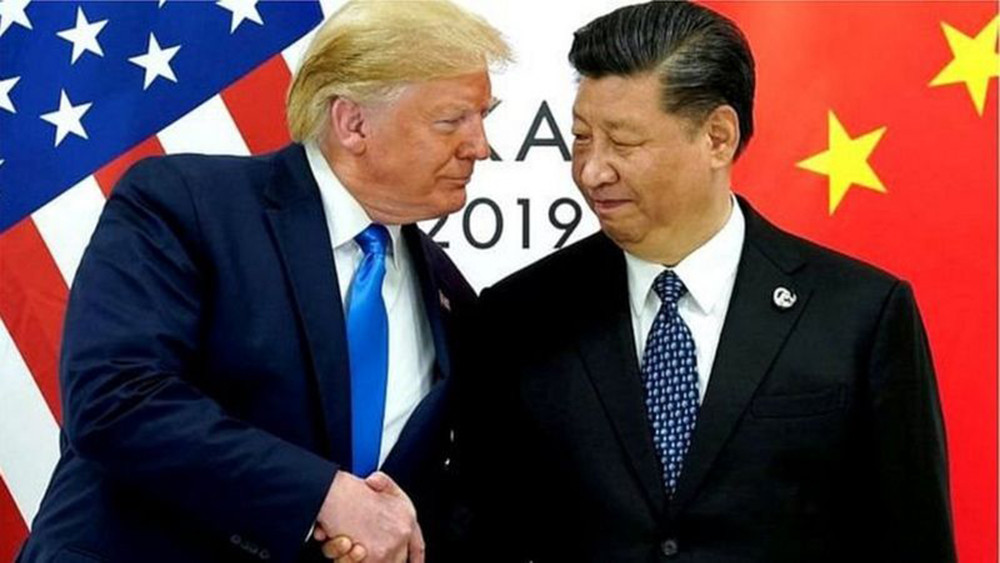 |
| Chinese President Xi Jinping meets with US President Donald Trump at the G20 Summit in Osaka, Japan on June 29, 2019. Photo: Getty Images |
If a cold war breaks out, Xi Jinping’s Chinese dream will go up in smoke. Therefore, China will do everything it can to avoid a cold war with the US, and thus there will certainly not be a hot war, at least in the next 10 years because both countries still need each other, even though they have opposing value systems and conflicting global strategic goals, but they are too closely linked in economic relations. They still need each other while still confronting each other.
However, although there is no cold war or hot war, the US-China relationship is increasingly tense but still under control.
PV:Thank you, General!

